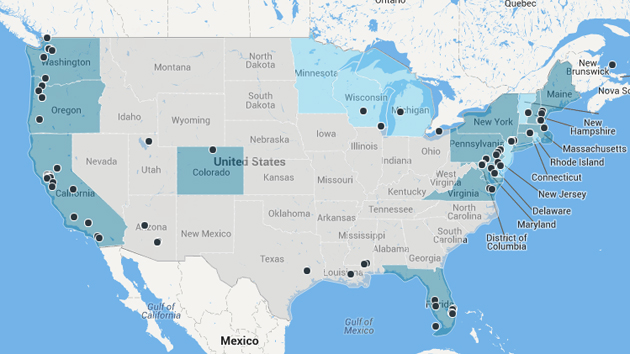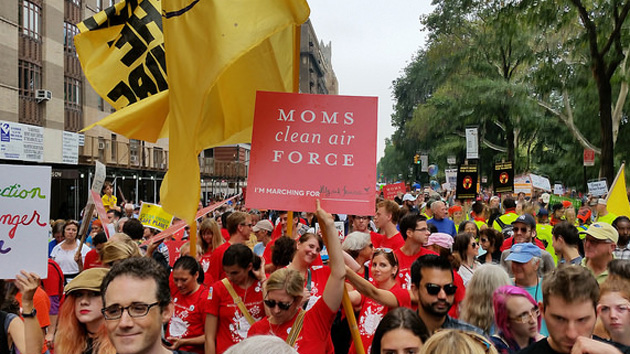Most states are still failing to prepare for the impacts of climate change, and there has been mixed progress among states with concrete plans, according to a first-of-its-kind compilation of data released Thursday by the Georgetown Climate Center.
Researchers at the center, a DC policy research group based at Georgetown University’s law school, surveyed states’ climate adaptation policies—plans to build sea walls, for example, or to shift hazardous waste facilities out of flood zones. They found that only a minority of states—14 right now—have fully fledged adaptation plans with specific goals in place. Nine more have adaptation plans in the works. The rest have not developed statewide adaptation plans (though a number of these states do have plans in place at the local or regional level).
Of the 14 states with concrete plans, California is clearly out front: The Golden State has the highest number of completed climate adaptation goals, and the highest number in the works. These achievements include passing the Safe, Clean and Reliable Drinking Water Supply Act of 2010, investing in more research into sea level rise, and even passing a “cool pavements” law that tries to reduce the impact of the urban heat island effect.
California ties with New York in terms of the percentage of stated goals achieved since enacting their plans, at 14 percent. The most ambitious number of goals has been set by Massachusetts—373 policies in total—but the state has only achieved 6 percent of them so far.
Researchers at the Georgetown Climate Center were quick to point out that each state is approaching the problem in a unique way, and so comparing individual policies isn’t as useful as tracking each state’s overall progress. The idea behind this new online “tracking” tool is to compare the policies, in hopes that shedding light will create some healthy interstate competition and allow leaders to learn from each other. “We hope that transparency will inspire more progress,” said Vicki Arroyo?, the center’s executive director, during a conference call with reporters. “[States] are right there on the front lines. So it’s their policies that will be making the difference.”
The team points to a slew of recent state-level achievements—for example, New York’s Community Risk and Resiliency Act, signed late last month, directs state agencies to consider climate impacts when funding projects, while Massachusetts’s Climate Preparedness Initiative is pouring $50 million into protecting energy and transport infrastructure against impacts like extreme weather. “While we still have a long way to go, it’s gratifying to see progress,” said Arroyo.
She added that states and local communities are very important in fighting climate change because they often control policies around transportation, waste-management, and infrastructure. “We do have the Obama administration doing some planning,” she said. “But the state and local communities have a direct and immediate role.”


















